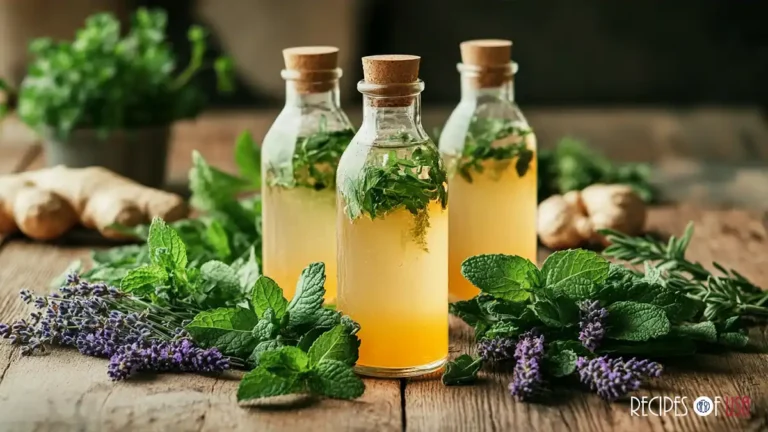Herbal cordial recipe—if you’ve never tried it before, you’re in for a treat! Picture this: you’re on a warm summer evening, sitting outside with a cool breeze in the air, and you sip on a delicious, aromatic drink made from fresh herbs and fruits. That’s exactly what a homemade herbal cordial offers—refreshing, flavorful, and packed with natural benefits. Whether you’re looking for a relaxing evening beverage or a thoughtful homemade gift, herbal cordials are the perfect choice.
In this guide, we’ll walk you through the steps of creating your very own herbal cordial recipe, from choosing the right herbs to sweetening the perfect blend. Get ready to unlock a new favorite drink!
Table of Contents
What is a Herbal Cordial Recipe?
An herbal cordial is essentially a sweetened herbal infusion that is often used as a base for various beverages or as a remedy. It’s typically made by steeping herbs, spices, and fruits in alcohol or vinegar, then sweetened with sugar, honey, or other sweeteners to create a rich, flavorful syrup. These cordials can range from very medicinal (with herbs like echinacea or ginger) to more delicious and aromatic concoctions (like lavender or mint).
Discover a delicious recipe for Hawaiian Roll Garlic Bread at Recipes of USA.
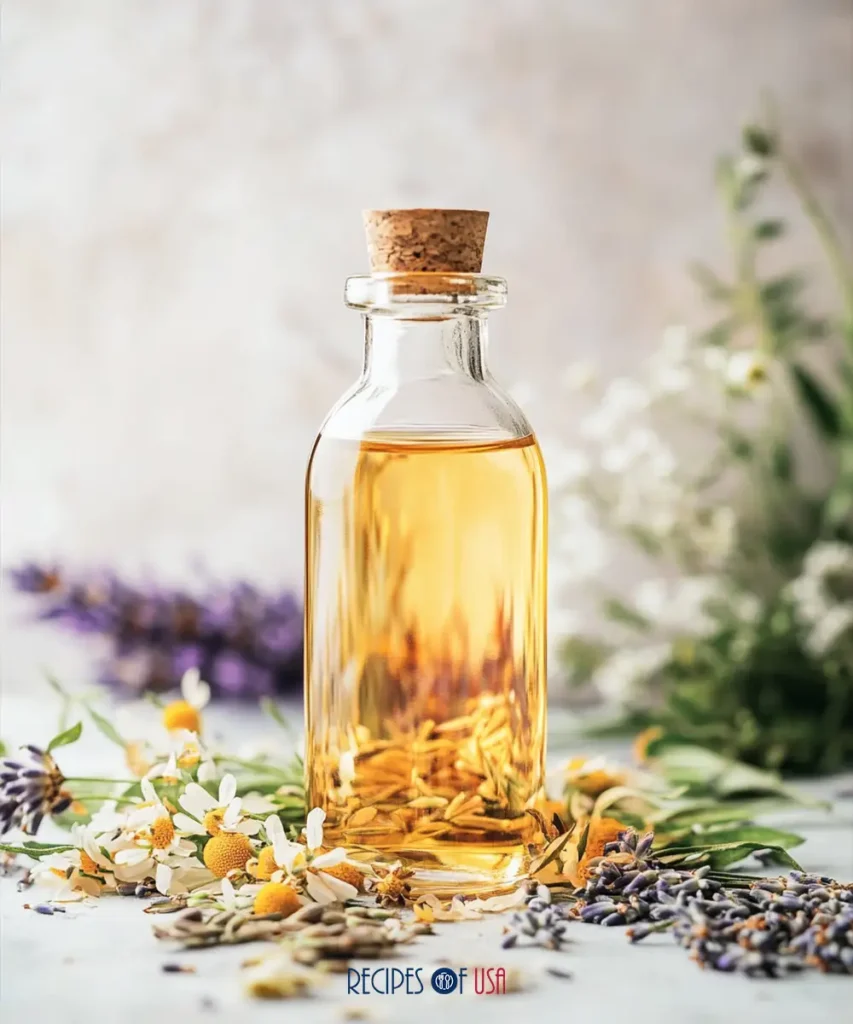
Benefits of Herbal Cordials
Herbal cordials offer a range of benefits, from promoting wellness to providing a refreshing taste. Here are some of the advantages of incorporating herbal cordial recipe into your routine:
- Digestive Aid: Many herbs used in cordials, like ginger and peppermint, are known to help with digestion.
- Boosted Immune System: Herbs such as elderberry and echinacea are often used for their immune-boosting properties.
- Relaxation and Calm: Herbs like chamomile, lavender, and lemon balm are perfect for stress relief and promoting relaxation.
- Natural Flavors: Herbal cordials are a great way to enjoy the natural flavors of plants without artificial additives.
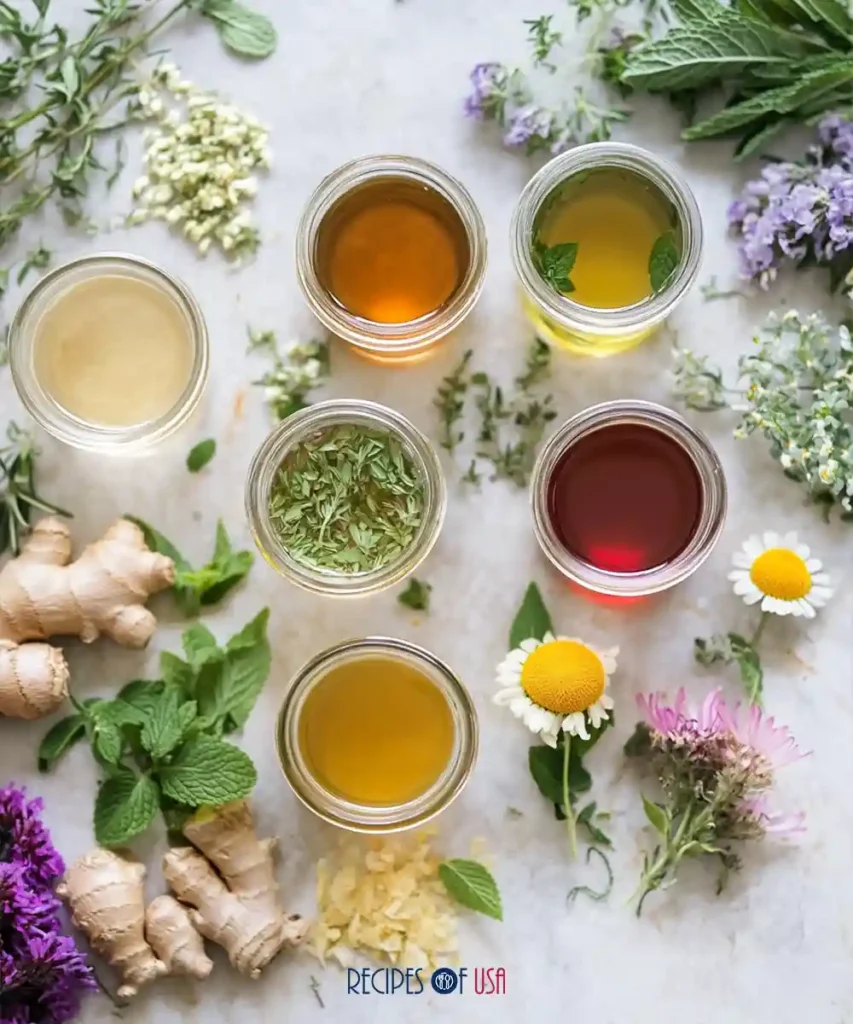
Choosing the Right Herbs for Your Cordial
Choosing the right herbs is essential in making a flavorful and effective herbal cordial. Different herbs bring unique benefits and flavors, so knowing which ones to select can make a big difference.
Popular Herbs for Cordials
- Lavender: is widely recognized for its soothing and stress-relieving effects.
- Peppermint: A refreshing herb that’s perfect for digestive health.
- Ginger: A warm, spicy root with anti-inflammatory and digestive benefits.
- Lemon Balm: A soothing herb that promotes relaxation.
- Elderflower: Often used for immune system support.
- Chamomile: Great for reducing anxiety and aiding sleep.
Herb Pairings to Try
- Lavender + Lemon: A refreshing yet calming combination.
- Peppermint + Ginger: A zesty and spicy pairing, great for digestion.
- Chamomile + Honey: A soothing and sweet blend perfect for relaxing.
How to Make Herbal Cordial Recipe
Now that you have an understanding of herbs and their benefits, let’s jump into how to make herbal cordial.
Basic Herbal Cordial Recipe
Ingredients:
- 1 cup of your chosen herbs (dried or fresh)
- 1.5 cups of alcohol (vodka, brandy, or gin work well)
- 1 cup of sugar (or more, to taste)
- 1.5 cups of water
Instructions:
- Steep the Herbs: Place your herbs in a jar and cover them with alcohol. Let them steep for 1-2 weeks, shaking the jar daily.
- Strain the Herbs: After the steeping period, strain the herbs from the alcohol using a fine mesh strainer or cheesecloth.
- Sweeten: Add sugar to the alcohol infusion, stirring until it’s dissolved. Adjust the sweetness to your liking.
- Dilute: Mix in water to dilute the cordial to your desired strength.
- Store: Store the cordial in bottles, keeping it refrigerated for longer shelf life.
Step-by-Step Guide
- Step 1: Gather your herbs and alcohol. Fresh herbs tend to infuse better, but dried herbs work just as well.
- Step 2: Place the herbs in a jar and add alcohol. Seal the jar tightly.
- Step 3: Allow the herbs to steep in a dark, cool place for 7-14 days. Shake the jar once daily to ensure thorough infusion.
- Step 4: After steeping, strain the herbs from the liquid using a fine strainer or cheesecloth.
- Step 5: Dissolve sugar into the liquid. Begin with 1 cup and modify the amount according to your preference.
- Step 6: Add water to dilute the cordial and bottle it up.
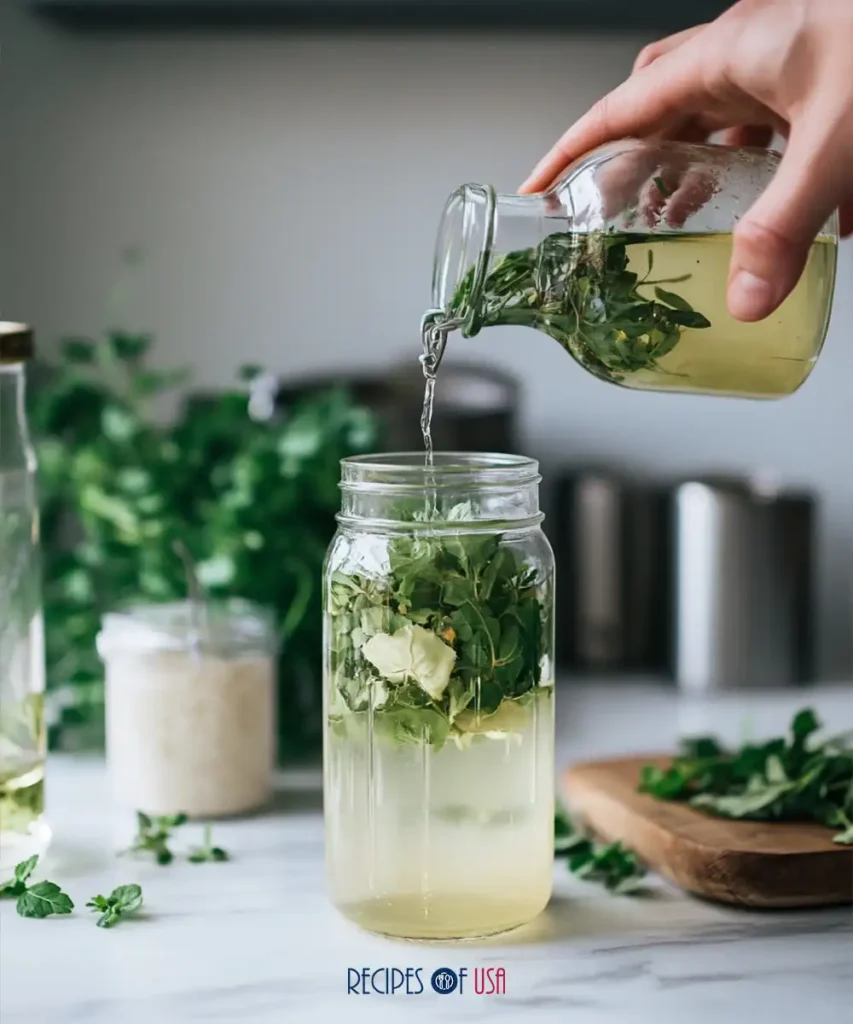
Sweetening Your Cordial
Sweetening your herbal cordial recipe is an essential step. You can use various sweeteners depending on your preference:
- Sugar: The most common sweetener, gives a classic taste.
- Honey: brings a natural sweetness and enhances the overall flavor.
- Maple Syrup: A great alternative for those seeking a richer taste.
- Stevia or Agave: For a low-calorie version.
Flavor Variations
Feel free to experiment with different combinations of herbs and fruits for unique flavors.
Citrus Infusion
Adding citrus fruits like oranges, lemons, or limes will bring a fresh, zesty twist to your herbal cordial. Try combining citrus with herbs like thyme or rosemary for a sophisticated flavor profile.
Mint and Ginger Cordial
For a refreshing and spicy flavor, combine mint and ginger. Both of these ingredients are well known for their digestive benefits.
Lavender Lemon Cordial
Lavender combined with lemon provides a relaxing and bright flavor, ideal for calming drinks before bedtime.
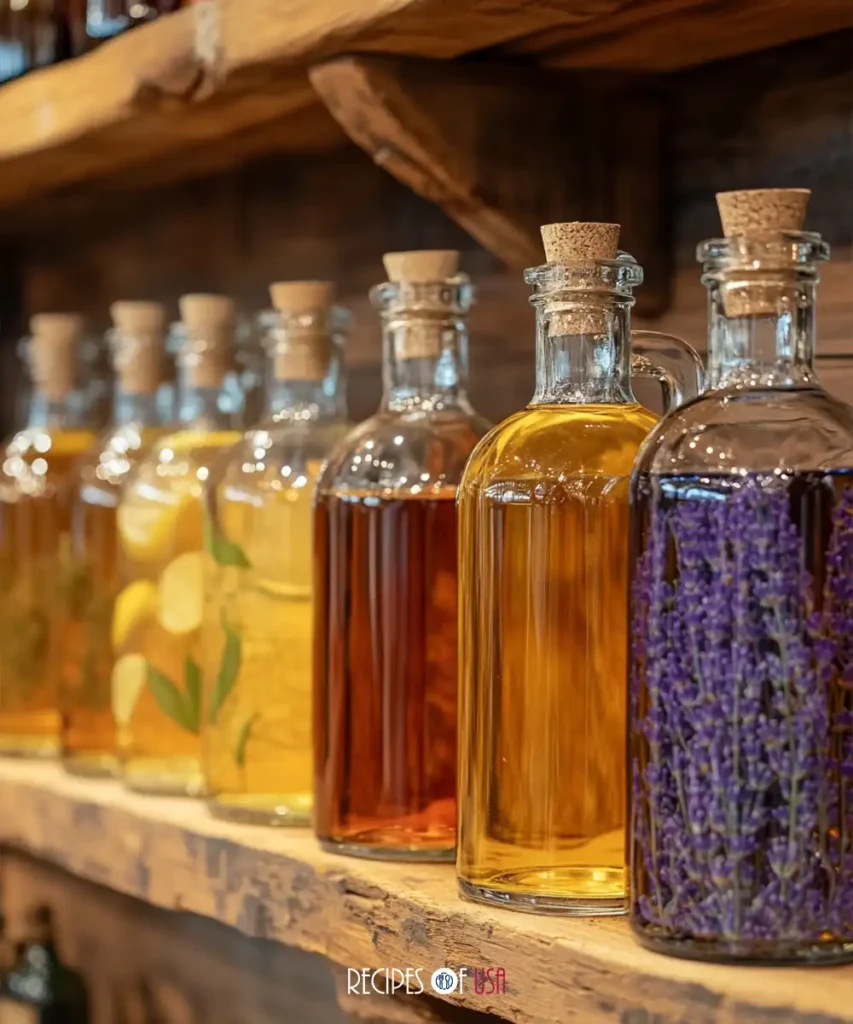
Storage Tips for Herbal Cordial Recipe
To ensure your herbal cordials last for several months, store them in clean, airtight bottles in a cool, dark place. They can last up to 6 months if properly stored, although you may want to consume them sooner for the best flavor.
Serving Suggestions
There are several ways to enjoy herbal cordials:
As a Mixer
Herbal cordials are fantastic as mixers in cocktails. You can add a splash to your favorite gin or vodka for a unique twist.
Hot or Cold Beverage
Serve your herbal cordial mixed with hot water for a soothing tea or diluted with cold water for a refreshing drink.
How to Use Herbal Cordials in Cocktails
Herbal cordials are great bases for cocktails. You can use them in place of sugary syrups, giving your drinks a natural, aromatic flavor. Some great cocktail ideas include:
- Lavender Lemon Gin Fizz
- Elderflower Spritz
- Mint Mojito with a Twist
Health Considerations
While herbal cordials can offer many health benefits, it’s important to remember that they should be consumed in moderation. Some herbs can interact with medications or cause allergies in certain individuals. Always consult a healthcare professional if you’re unsure about the herbs you’re using.
Common Mistakes to Avoid When Making Cordials
- Over-sweetening: Too much sugar can overpower the herbal flavor.
- Using the wrong herbs: Some herbs can be too strong or medicinal, so balance is key.
- Not allowing enough steeping time: Give your herbs enough time to infuse for a full-bodied flavor.
Why You Should Make Your Own Herbal Cordial
Making your own herbal cordial allows you to customize the flavors and health benefits to suit your needs. Plus, it’s a fun and rewarding project that ensures you know exactly what’s in your drink. Homemade cordials are free from artificial preservatives and unnecessary additives, making them a healthier option than store-bought versions.
Conclusion
Herbal cordials are a wonderful way to incorporate natural flavors and wellness benefits into your daily routine. Whether you’re looking to make a relaxing evening drink or a refreshing mixer for a summer party, herbal cordials provide a unique and healthy option. With a little creativity, you can experiment with herbs, fruits, and sweeteners to create a drink that suits your taste perfectly.
Explore a variety of delicious herbal cordial recipes at The Herbal Academy.
FAQs
What are the three basic ingredients of cordials?
The three basic ingredients of cordials are herbs, alcohol (or vinegar for non-alcoholic versions), and a sweetener.
What herb is used in alcoholic cordial?
Various herbs can be used in alcoholic cordials, with popular choices including lavender, ginger, mint, chamomile, and elderflower.
What is the difference between a cordial and a syrup?
The main difference is that cordials often contain alcohol or vinegar as a base, while syrups are typically made with just sugar and water, without any alcohol.
How long will homemade cordial last?
Homemade cordial can last up to 6 months if stored in a cool, dark place, but it’s best consumed within a few months for optimal flavor.
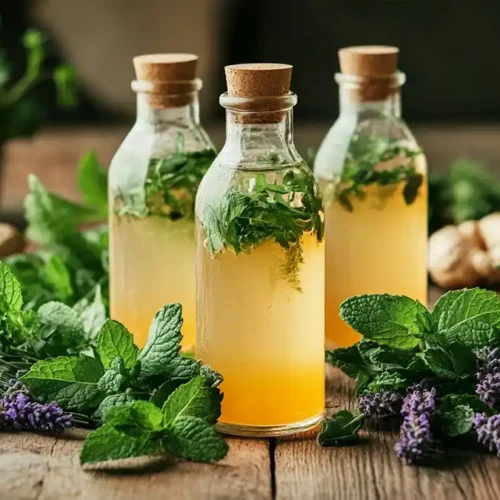
Basic Herbal Cordial
Equipment
- Jar or Bottle
- Fine Mesh Strainer or Cheesecloth
Ingredients
- 1 cup herbs fresh or dried (choose based on preference)
- 1.5 cups alcohol vodka, brandy, or gin
- 1 cup sugar or more, to taste
- 1.5 cups water
Instructions
- Place your chosen herbs in a jar and cover them with alcohol. Seal the jar tightly and shake daily.
- Allow the herbs to steep in a cool, dark place for 1-2 weeks, shaking the jar daily.
- After steeping, strain the herbs from the alcohol using a fine mesh strainer or cheesecloth.
- Add sugar to the infused alcohol and stir until dissolved. Adjust the sweetness to your liking.
- Mix in water to dilute the cordial to your desired strength.
- Store the cordial in a bottle and refrigerate for longer shelf life, or keep in a cool, dark place.

